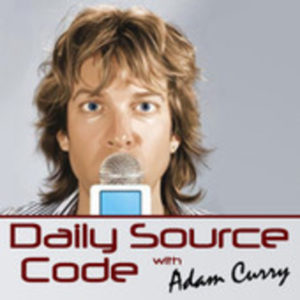 (Source: Radio World via Richard Langley)
(Source: Radio World via Richard Langley)
Radio World supports efforts to save our radio and audio heritage, including the work of the Radio Preservation Task Force,?a project of the Library of Congress.
Here is one in a series of guest commentaries about the topic.
Jeremy Morris is an assistant professor in the Department of Communication Arts at the University of Wisconsin-Madison.
In January 2014, Adam Curry sent a quick tweet out to his 40,000-plus followers with a modest request: “Looking for a full archive of ‘Daily Source Code’ mp3s.” Not just your average media user looking for bootlegged files, Adam Curry was one of podcasting’s first breakout stars in the early 2000s. He was trying to track down one of the first widely popular podcasts, the “Daily Source Code.” But his request was certainly odd; after all Curry was actually the host and producer of the “Daily Source Code,” which ran from 2004 to 2013 (over 860 episodes!).
As Curry lamented on his website: “For a number of [stupid and careless] reasons, I am not in posession of most of these.” [sic]
For those familiar with radio history, this story is probably less surprising. Much of radio’s history has been lost to vagaries of time, be it through the willful ignorance of companies looking to “preserve” only that which could be “monetized,” or the unintentional negligence of hosts, producers and engineers without the foresight, budgets or means to realize that the radio they were making and broadcasting would shape culture for decades to come — culture that media historians, scholars and hobbyists would later want to analyze, research, teach and reference.[…]
Click here to read the full article at Radio World.
Thank you–as Richard knows, podcasting is the distribution method behind our Shortwave Radio Audio Archive. It’s an ideal platform for delivery of recorded broadcasts–listeners subscribe and then maintain their own local copy of the entire archive. Podcasting applications can insure that any new episodes are downloaded automatically.
This year, I will represent the Shortwave Radio Audio Archive at the Radio Preservation Task Force meeting at the Library of Congress. I very much look forward to the event and meeting others in the radio archives world.

I think one of the important takeaway items any reader of this blog should have is that you, yes you reading this comment can also archive podcasts yourself without any special training or qualifications. While the work of Radio World and others is extremely important, you can save your own personal favorite shows yourself.
As Podcasting clients move more to cloud-based models such as Stitcher, PocketCasts which abstract/separate the underlying data files from the listener. This isn’t necessarily a bad thing because these apps have greater interfaces and bring in more listeners. However, what these apps tend to do is hide the underlying audio file (often MP3) from you the listener, or host it away on cloud services or hidden in not designed to really be gotten at subfolders.
It’s often forgotten that the “old” way to listen to podcasts was to download them and transfer them to a device. You can still do this, and bulk download your favorite podcast episodes for preservation. These “podcatcher” apps, often unfortunately discontinued due to falling out of favor” still mostly work in a lot of cases and can easily help archive your favorite podcast shows.
Apps like HermesPod http://hermespod.com/ and others, while usually designed to only grab the latest 2 or so episodes by default, can be persuaded to re-download old podcast episodes and treat them as “new”, allowing for bulk downloads of tens or hundreds of podcast episodes at once. While this kind of bulk downloading doesn’t accomplish saving other important info about episodes such as the metadata and descriptions, it’s a fairly low effort way to preserve your own favorite podcasts.
RSS feeds and podcast hosting come and go much quicker than you think. If you’ve enjoyed any podcasts in the past and ever want to go back and re-listen to them, I’d highly encourage you to begin building your own personal archive now, rather than later, as the episodes you want in 2 years stand a very good chance of not being there.